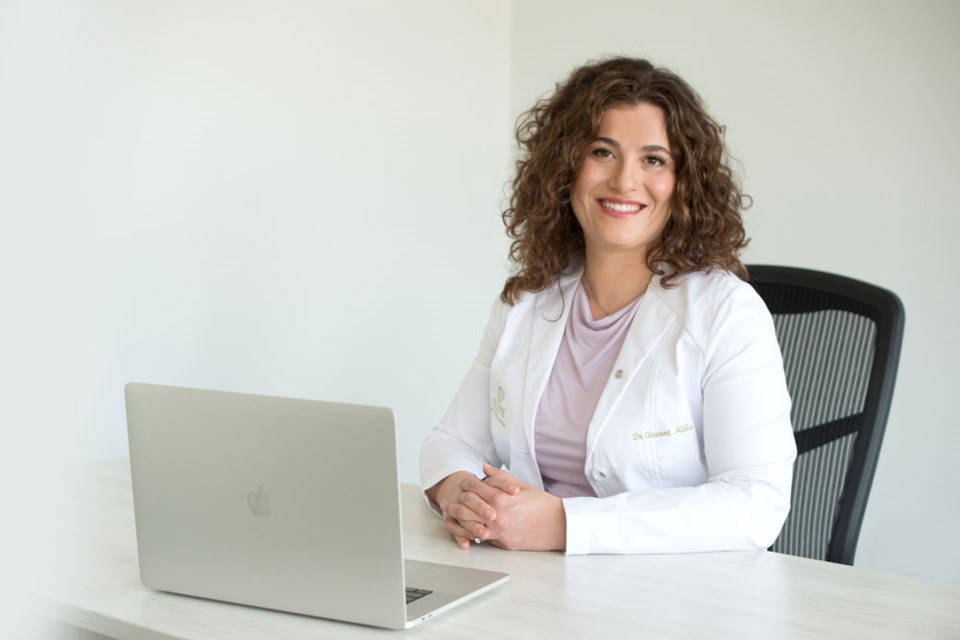Are you currently on the path to parenthood, considering expanding your family, or perhaps exploring fertility preservation options like egg freezing?
In the pursuit of optimizing your fertility, simple lifestyle changes can make a significant difference. These changes empower you to take charge of your reproductive health and increase your chances of conceiving. Here are some lifestyle changes to consider that may optimize your fertility.
- Take a prenatal supplement: Take at least 1 mg of folic acid. Folic acid helps to prevent neural tube defects such as spina bifida.
- Don’t smoke: Smoking can lead to miscarriage, premature birth, and low-birth weight babies, as well as negatively affect your fertility.
- Cut back on alcohol: Alcohol is harmful to the fetus. So cut back when you start trying to get pregnant and stop from drinking altogether during the last two weeks of your cycle.
- Eat a healthy diet: Embrace a Mediterranean-style diet rich in fruits and vegetables, especially if you face challenges with ovulation or conditions like polycystic ovary syndrome (PCOS). Aim for 5-10 servings of fruits and veggies daily, opt for unrefined carbohydrates like whole grains, and incorporate healthy fats like olive oil. Diversify your protein sources with options such as beans, nuts, seeds, lentils, poultry, and fish.
- Monitor your weight: Women with a body mass index (BMI) below 19 or above 32 have a lower chance of pregnancy and an increased risk of miscarriage.
- Know when you are ovulating: Ovulation problems are one of the most common reasons for women having trouble conceiving. If your menstrual cycle is irregular or very far apart (a regular cycle is between 26 and 34 days) then you may not be ovulating regularly.
“The easiest way to find out if you are ovulating, and the one I recommend to my patients at Olive, is to use an Ovulation Predictor Kit (OPK) where you perform a urine test, and it measures a surge in the luteinizing hormone (LH) in your urine if you are ovulating,” says Dr. Ginevra Mills, Reproductive Endocrinology and Infertility Specialist at Olive Fertility Centre Victoria.
The 12 to 36 hours from the time you test positive for ovulation is the best time to conceive.
Ovulation predictor kits are useful because they tell you when you are about to ovulate so you can have intercourse before you ovulate. The sperm will live in the body for approximately 3 days, but the egg only lives for 24-40 hours, so it is important to have intercourse before you ovulate rather than after.
What if you are following these tips and still can’t get pregnant?
Even if you had no difficulty getting pregnant previously, it might not be so easy this time for a number of reasons:
- Your fertility clock may be declining more rapidly. One in six couples will have difficulty getting pregnant but this number increases to three in six or 50% once the woman is over 39.
- There could be some scarring from your previous delivery, especially if you had a C-section.
- You may not be ovulating regularly.
When is it time to get medical advice?
Talk to your doctor if:
- You're under 35 and have been trying to get pregnant for 12 months, or over 35 and trying for 6 months. A woman’s chance of getting pregnant decreases after 32, and the chances decrease significantly after age 37.
- You have endometriosis, a history of pelvic infections, or sexually transmitted infections. These conditions increase the risk of infertility.
- Your partner has a history of infection (e.g., mumps), injury or surgery on his testicles, difficulty with erection or ejaculation, or if he has been diagnosed with a sperm problem.
- You have irregular menstrual cycles, especially when they occur infrequently (every 2, 3 or more months apart) or those which occur less than 25 days apart.
- You or your partner has a known health problem such as diabetes, high blood pressure, or a history of cancer treated with radiation or chemotherapy.
- There's a family history of early menopause among your close female relatives.
These are general guidelines, and individual circumstances may vary.

Remember that for most people who have difficulty conceiving, advances in medical treatment have made it possible for them to have a baby. In B.C. your consultations with a fertility specialist, as well as initial investigations for infertility, are covered by MSP with a referral from a family doctor.
Olive Fertility Centre is one of Canada’s leading IVF and prenatal diagnosis centres with clinics in Vancouver, Surrey, Kelowna, and Victoria. The clinic offers inclusive fertility care for those with primary or secondary infertility, LGBTQ2SIA+ persons, and people needing donor sperm, donor eggs or surrogacy, egg freezing, and beyond.
Same day virtual referral option
Olive Fertility offers patients the option to book a same-day, no-fee, virtual referral appointment www.olivefertility.com/how-to-book. The referral will be automatically sent to Olive Fertility and a member of our intake team will contact you shortly thereafter to book your fertility appointment.



